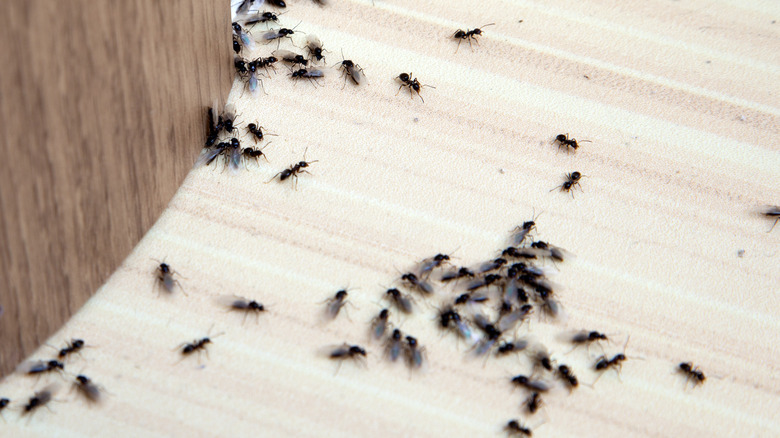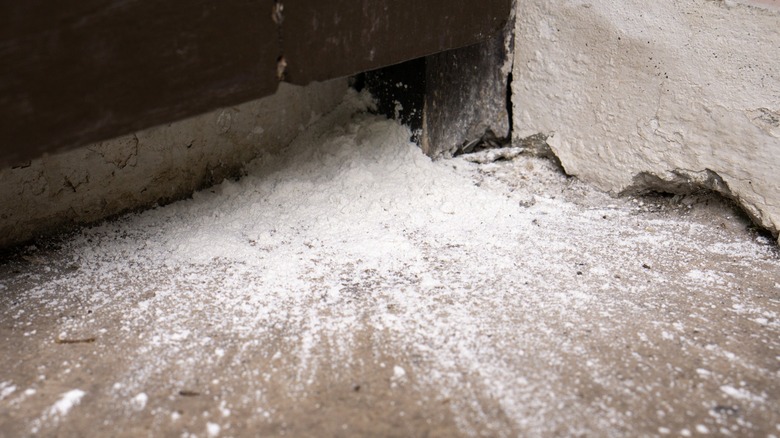The TikTok-Approved Ant Repellent That May Help Target Other Unwanted Critters
Critters and pests are guests you never want to see. It's an everyday struggle, especially when so many products out there just don't do the trick. But here's some good news for you homeowners worrying about pest problems: People are buzzing about Ortho's Orthene online. It's sold mainly as a fire ant killer, but users are raving about how it's not just great against ants but also knocks out almost any bugs, including those annoying roaches.
On TikTok, there's a lot of buzz about using Orthene to tackle roach and ant problems. Users are sharing their simple yet effective methods. One popular approach involves sprinkling a few tablespoons of Orthene in areas where roaches and ants are spotted. The next day, you'll likely be sweeping them away. Another TikToker suggests an interesting hack: mixing equal parts of sugar with Orthene to lure insects to it. Others still claim to have found success by mixing the powder with water and using it as a spray solution. Let's get into what exactly this alleged miracle solution is and how it works.
What is Orthene Fire Ant Killer?
Ortho's Orthene Fire Ant Killer is one of the popular brand names under which Orthene, an organophosphate insecticide, is marketed. These kinds of pesticides are widespread and widely used in agriculture, gardens, and even in veterinary practices.
Organophosphate insecticides are chemicals used to kill many types of insects. It kills insects either through ingestion or direct contact. The active ingredient in Orthene is acephate, which works by damaging acetylcholinesterase, an enzyme that controls nerve signals in the body. Its job is to break down acetylcholine, a neurotransmitter that allows nerves to talk to muscles and other parts of the body. Because acephate inhibits acetylcholinesterase, acetylcholine levels rise. This affects the insects' nervous system and results in an overactivity of the brain, nerves, and tissues, eventually leading to their death.
However, acephate is a weak cholinesterase inhibitor. So why does it work so well on insects? When insects eat acephate, their bodies convert acephate to methamidophos, a more potent and toxic organophosphate insecticide than acephate.
Warnings against Orthene's use
Ortho's Orthene and many other Orphene brands are used to kill a wide range of pests on fields, food crops, and ornamental plants outdoors. Because of potential exposures when used indoors, the US Environmental Protection Agency has discontinued its residential and lawn registrations. In fact, Orthene's label explicitly notes that its use is for mound treatments in home lawns and around ornamental plants. It also warns that it is a violation of federal laws to use the product in a manner inconsistent with its labeling.
Indoor use of Orthene isn't recommended. Not only do many users complain of its horrible smell, but the insecticide also poses hazards to humans and pets. Orthene's label notes that acephate is a cholinesterase inhibitor in humans. The EPA notes that acephate can also have the same cholinesterase inhibition in humans and animals, causing nervous system overstimulation. Exposure can lead to symptoms like nausea, confusion, and dizziness. At high exposures, the pesticide can cause respiratory paralysis and death.
Orphene has ecological risks as well. If birds are regular visitors to your lawn, the pesticide is toxic to birds. The same is true for honey bees; we know there are plenty of reasons why you shouldn't get rid of the bees in your backyard! Fortunately, there are safer indoor pesticide alternatives. For example, diatomaceous earth easily takes care of common houseplant pests. You can also repel roaches naturally with two common kitchen ingredients: a combination of onion and baking soda.


